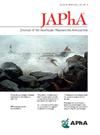知识和态度关于物质使用障碍治疗和减少危害的做法在美国药剂师:范围审查。
IF 2.5
4区 医学
Q3 PHARMACOLOGY & PHARMACY
Journal of the American Pharmacists Association
Pub Date : 2025-06-19
DOI:10.1016/j.japh.2025.102462
引用次数: 0
摘要
背景:由于药剂师在药物管理方面的可及性和专业知识,他们在解决物质使用障碍(sud)和扩大减少危害服务方面处于独特的地位。然而,态度和结构上的障碍可能会限制她们发挥这一作用的全部潜力。目的:本综述探讨了药师在SUD治疗和减少危害方面的知识、态度和参与情况。方法:使用Levac等人对Arksey和O' malley框架的改进进行范围审查。2024年8月3日,我们对MEDLINE (PubMed)、PsycInfo、Embase、ProQuest Health & Medical和ProQuest Psychology进行了系统搜索,共获得87篇关于药剂师与SUD和减少危害相关的知识、态度和实践的文章。结果:药剂师普遍承认阿片类药物使用障碍(MOUDs)药物在降低阿片类药物相关死亡率方面的有效性,但通常对患有SUDs的个体持有污名化信念。虽然支持减少危害的战略,如纳洛酮分发和针头和注射器规划,但参与程度差别很大。教育和培训方面的重大差距仍然存在,使得药剂师对SUD护理的信心和实践经验有限,尽管他们报告熟悉MOUDs和纳洛酮药理学。结论:本综述强调了支持、障碍和知识差距的复杂相互作用,这些因素影响了药剂师在SUD治疗和减少危害中的作用。有针对性的教育、支持性政策和跨专业合作对于使药剂师能够为sud患者提供无耻辱感的全面护理至关重要。本文章由计算机程序翻译,如有差异,请以英文原文为准。
Knowledge and attitudes regarding substance use disorder treatment and harm reduction practices among US pharmacists: A scoping review
Background
Pharmacists are uniquely positioned to address substance use disorders (SUDs) and expand harm reduction services due to their accessibility and expertise in medication management. However, attitudinal and structural barriers may limit their full potential in this role.
Objective
This scoping review examines pharmacists' knowledge, attitudes, and engagement in SUD treatment and harm reduction.
Methods
A scoping review was conducted using Levac et al.’s enhancement of Arksey and O'Malley's framework. A systematic search of MEDLINE (PubMed), PsycInfo, Embase, ProQuest Health & Medical, and ProQuest Psychology was performed on August 3, 2024, yielding 87 articles addressing pharmacists' knowledge, attitudes, and practices related to SUD and harm reduction.
Results
Pharmacists generally acknowledge the efficacy of medications for opioid use disorder (MOUDs) in reducing opioid-related mortality but often hold stigmatizing beliefs about individuals with SUDs. While supportive of harm reduction strategies, such as naloxone distribution and needle and syringe programs, engagement varies widely. Significant gaps in education and training persist, leaving pharmacists with limited confidence and practical experience in SUD care, despite their reported familiarity with MOUDs and naloxone pharmacology.
Conclusion
This review highlights a complex interplay of support, barriers, and knowledge gaps shaping pharmacists' roles in SUD treatment and harm reduction. Targeted education, supportive policies, and interprofessional collaboration are crucial to enabling pharmacists to provide stigma-free, comprehensive care for individuals with SUDs.
求助全文
通过发布文献求助,成功后即可免费获取论文全文。
去求助
来源期刊
CiteScore
3.30
自引率
14.30%
发文量
336
审稿时长
46 days
期刊介绍:
The Journal of the American Pharmacists Association is the official peer-reviewed journal of the American Pharmacists Association (APhA), providing information on pharmaceutical care, drug therapy, diseases and other health issues, trends in pharmacy practice and therapeutics, informed opinion, and original research. JAPhA publishes original research, reviews, experiences, and opinion articles that link science to contemporary pharmacy practice to improve patient care.

 求助内容:
求助内容: 应助结果提醒方式:
应助结果提醒方式:


